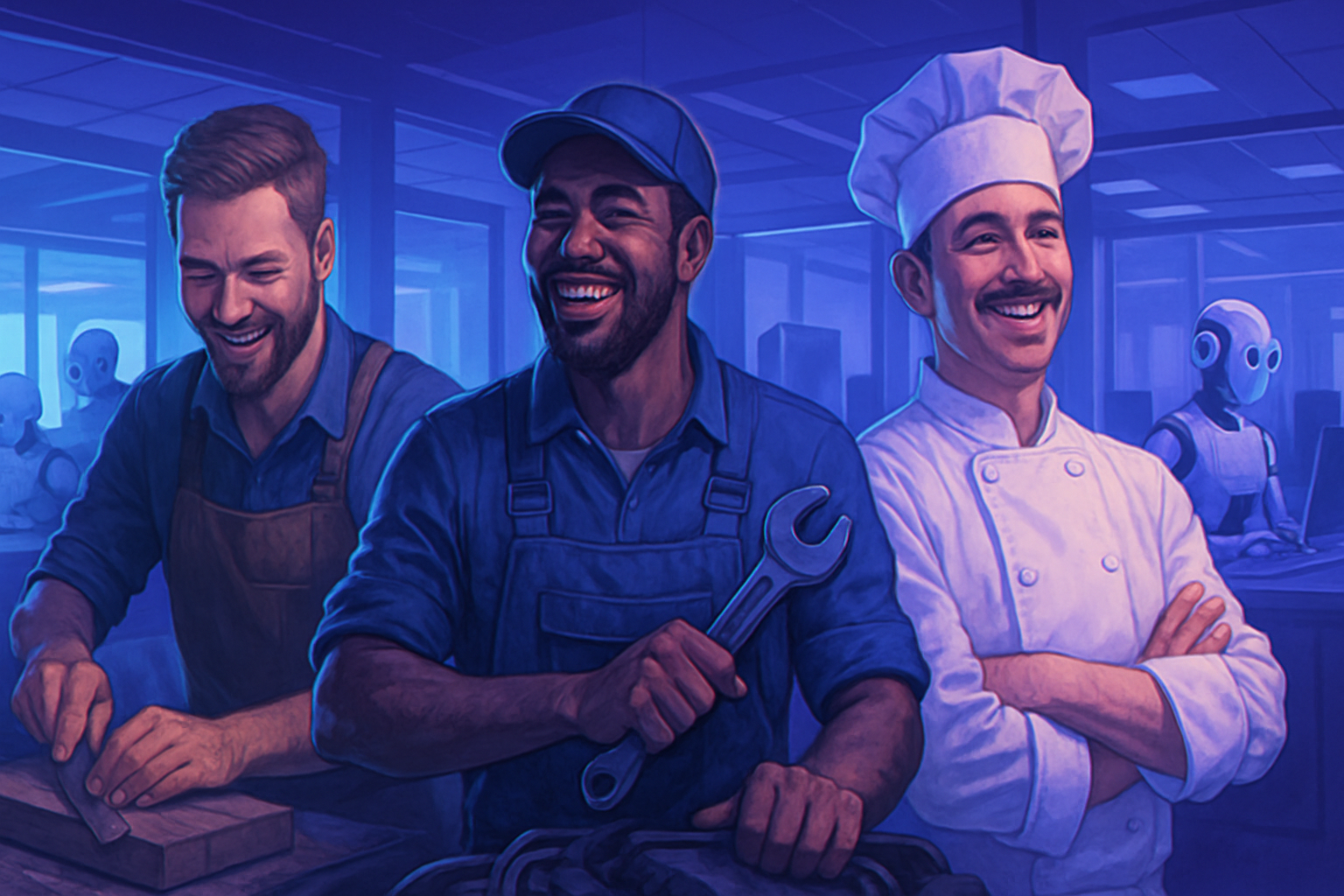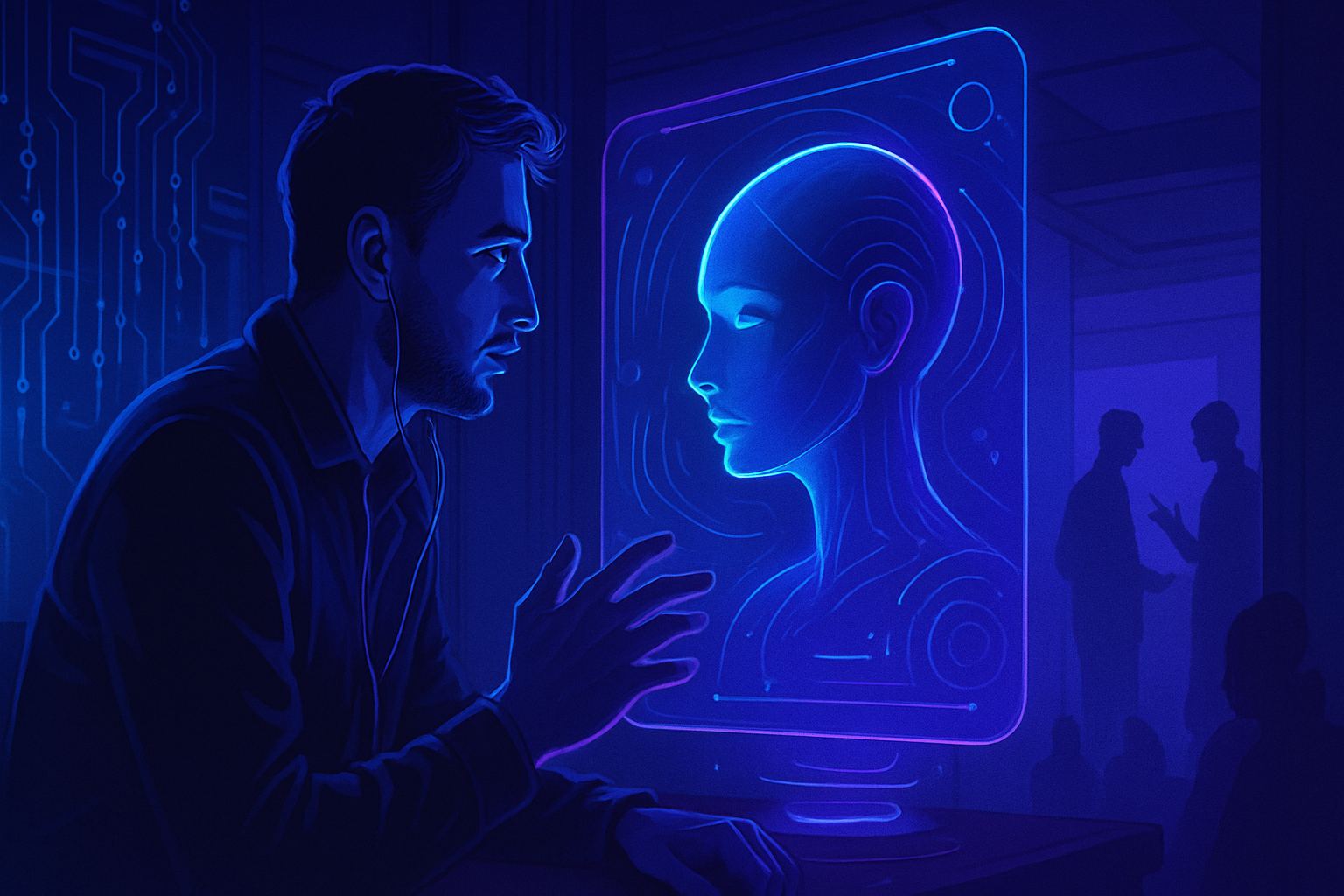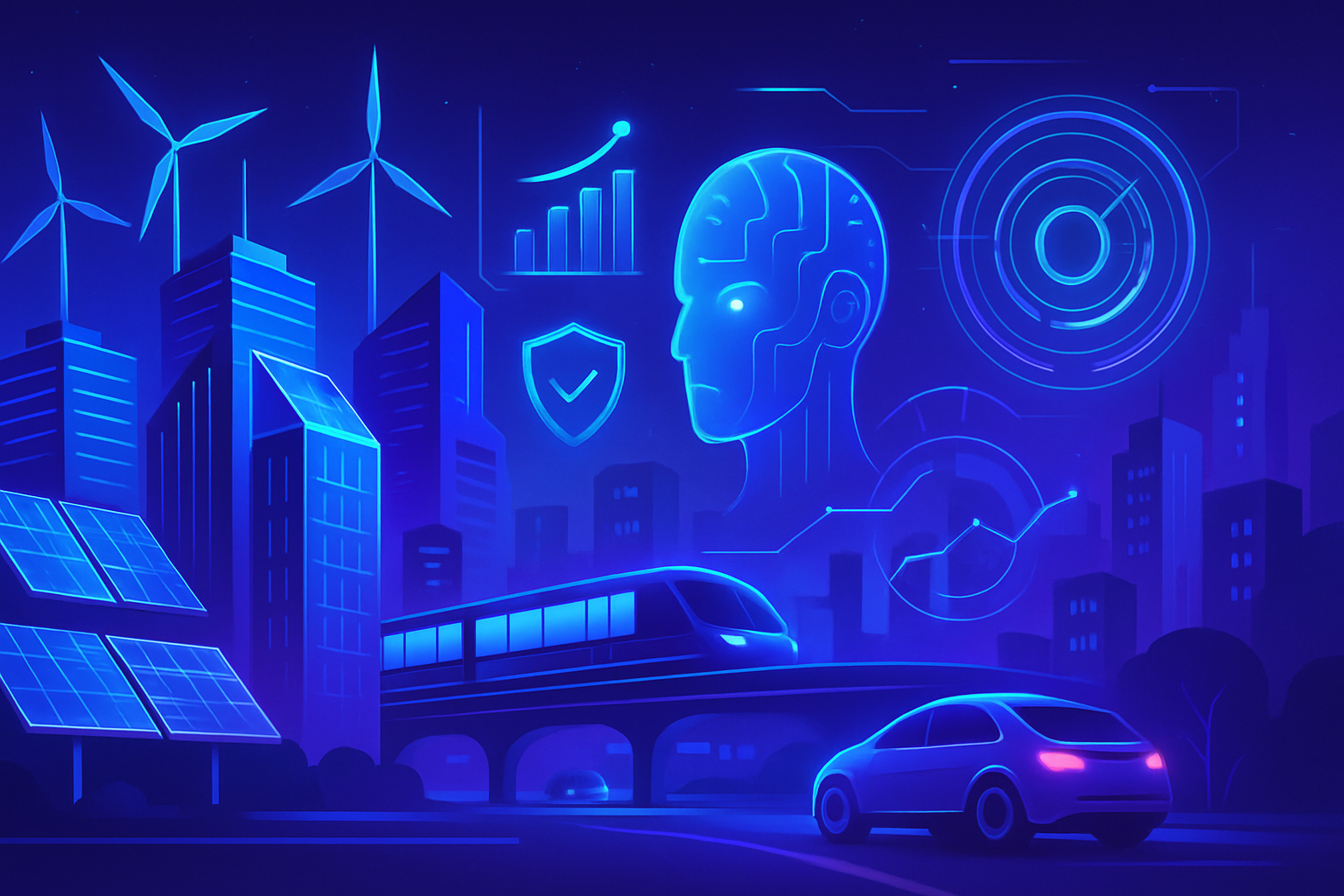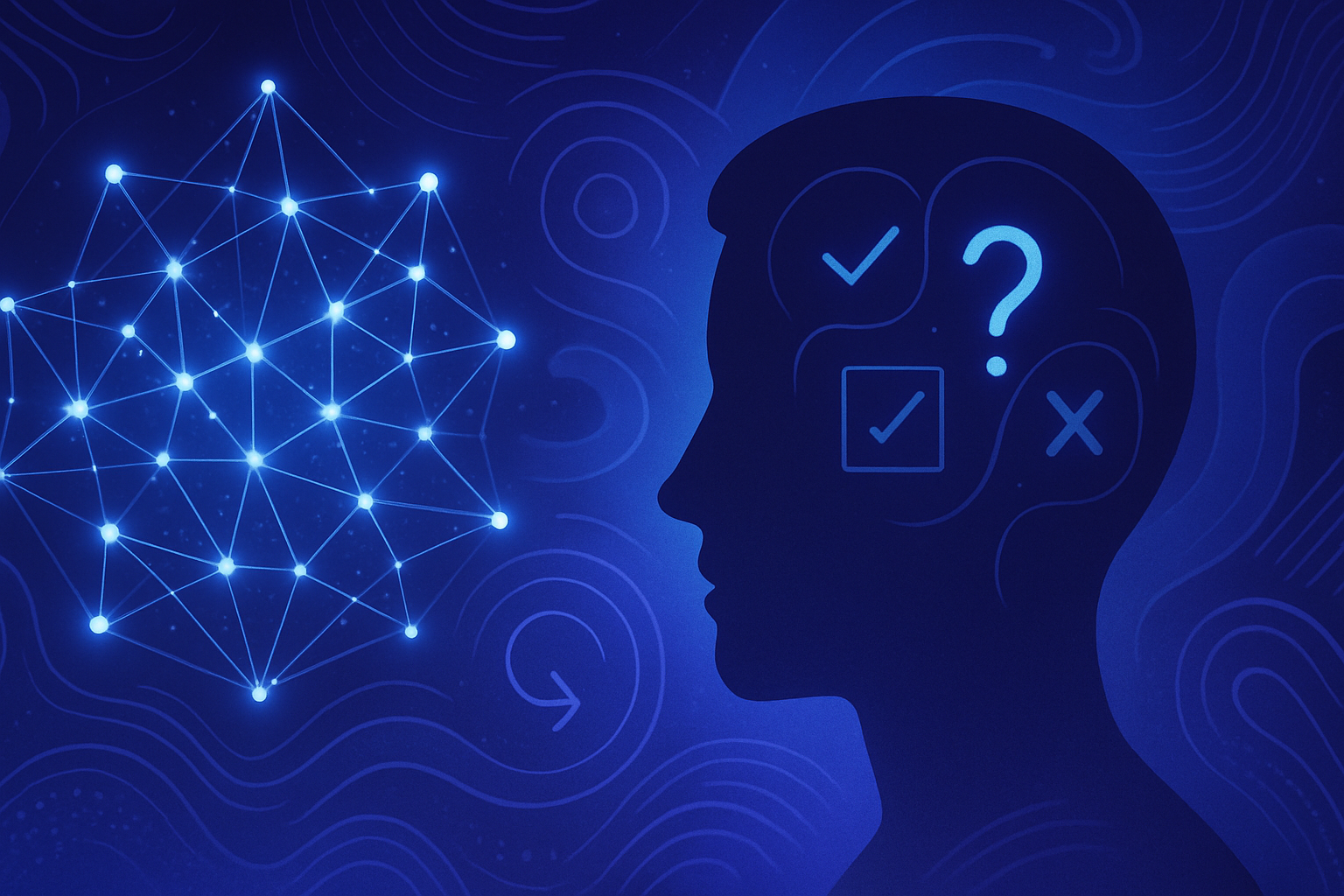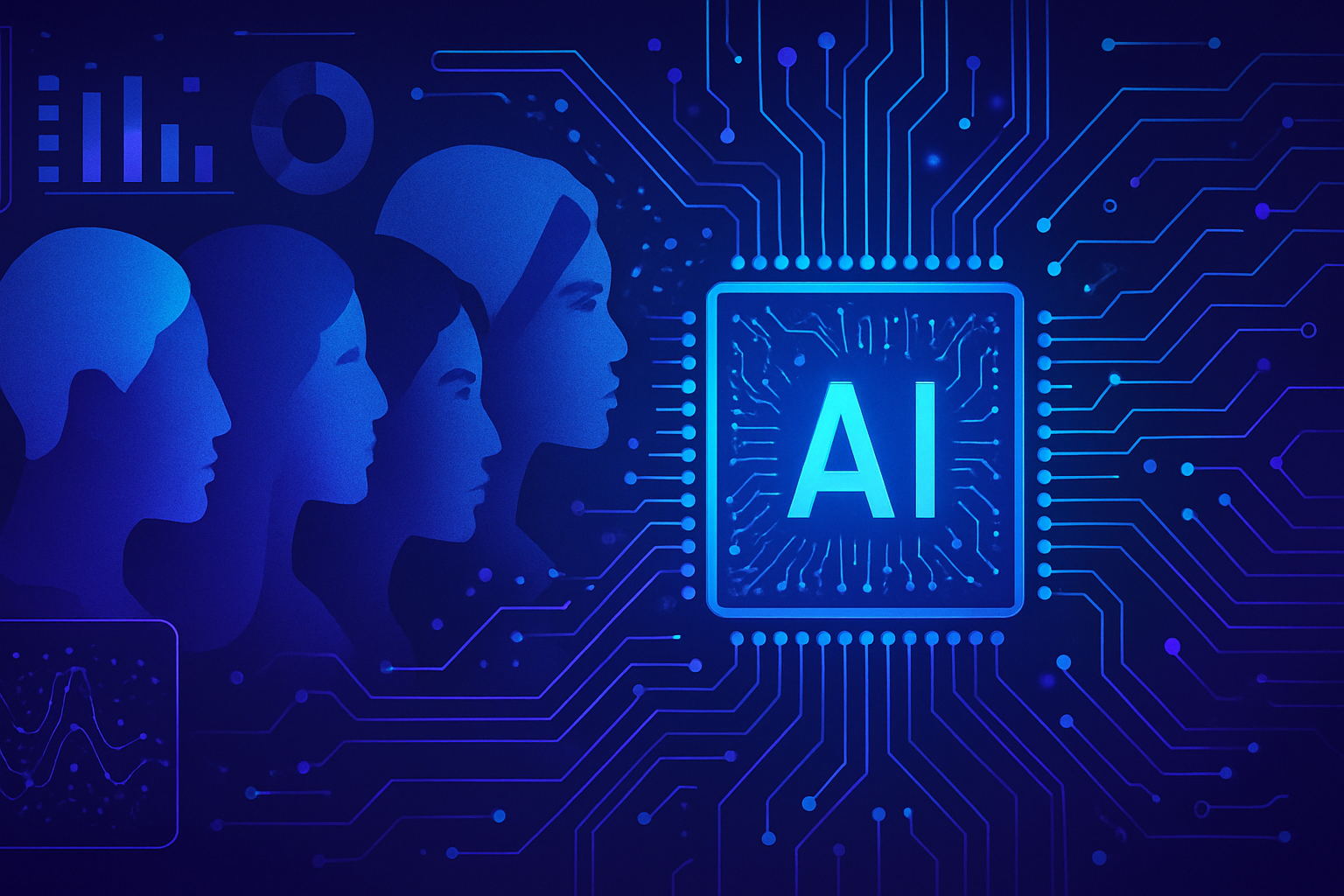Manual trades are emerging as an attractive alternative. In the face of the uncertainties caused by the rise of artificial intelligence on office careers, the trend is reversing. The sustainability of craft professions is increasingly appealing to workers. Due to the growing automation, professions once considered less prestigious are gaining value. Practical skills ensure better job security. The current generation is beginning to favor jobs that require tangible skills, away from the risks of digitization.
Manual trades on the rise
The rise of artificial intelligence (AI) is reshuffling the job market. In the face of this rapid evolution, manual trades are gaining popularity, attracting more and more young job seekers. Artisans, rare in an increasingly digitized world, thus find new legitimacy.
The vulnerability of office jobs
Professions traditionally seen as prestigious, such as those in the legal or administrative sectors, are seeing their futures increasingly compromised. Geoffrey Hinton, Nobel laureate and AI pioneer, has highlighted that office workers such as legal assistants are threatened by the evolution of technologies. In contrast, trades such as plumbing or electricity retain their value and security.
Choices motivated by economic security
A recent study from Resume Builder reveals that 42% of young adults from Generation Z are now choosing manual labor jobs. Many are avoiding prohibitive tuition fees and the potential replacement by AI. For these young people, a manual job signifies financial stability without the anxiety of student debt.
The impact of AI on employment
Concerns about AI go beyond mere speculation. Goldman Sachs estimated that with the massive adoption of AI, 6 to 7% of the American workforce could be affected. In contrast, manual professions should endure, with significant job openings in various technical sectors.
The advantages of manual trades
The robustness of manual trades lies in their practical nature and constant need for human expertise. For example, in the automotive industry, computing helps diagnose problems but cannot replace the skill of a mechanic. Physical actions and real-time decision-making are irreplaceable by machines.
An evolving technology
Despite the rise of robotic technologies, the capacity of machines to perform complex tasks remains limited. AI is often primarily trained on textual data, which hinders its ability to understand the physical world. Experts, such as Ken Goldberg from the University of California, assert that replacing manual workers with robots remains a myth.
Human-machine collaboration
Artisans and technicians are now using advanced technological tools to enhance their efficiency. The harmony between humans and AI paves the way for a new era of collaboration, where people leverage automation while preserving tasks that require human interaction. Some professions continue to demand this unique expertise, making the versatility of manual workers paramount.
Upcoming Challenges
Despite apparent adaptability, manual trades are not immune to advances in AI and automation. Innovations such as specialized robots could replace certain basic tasks. Vigilance is therefore necessary for these traditional professions to ensure they evolve in the face of changes.
To delve deeper into this topic, consult analyses on the impact of AI on the job market, implications on mental health, and the importance of teaching the basics of AI at a young age on education.
Frequently Asked Questions about the Rise of Manual Trades in the Face of AI
Why are manual trades considered safer than office jobs in the face of AI?
Manual trades involve practical skills and expertise that cannot be easily automated. Jobs requiring specific know-how, such as plumbing or mechanics, are less likely to be replaced by artificial intelligences, which struggle to perform complex physical tasks.
Which manual professions offer the best job security in an increasingly automated world?
Professions such as plumber, electrician, mechanic, and other construction trades, are often regarded as offering superior job security. These professions require human intervention that cannot be entirely replaced by technology.
How are young generations reacting to the rise of AI in the workplace?
More and more young people, especially those from Generation Z, are turning to careers in manual trades to avoid the risk of unemployment due to AI, while seeking financial stability without the pressure of student debt.
What are the advantages of manual trades compared to office careers in the face of AI?
Manual trades allow for tangible work and offer practical challenges that cannot be easily automated. Furthermore, they tend to offer sustainable career opportunities despite the rise of automation in other sectors.
Could AI replace some manual jobs in the future?
Although advances in robotics and automation may target certain aspects of manual trades, it is still unlikely that robots will completely replace human workers in professions requiring manual skills and complex decisions.
What are the key skills needed to succeed in a manual job today?
Essential skills include technical expertise, a good sense of mechanics, problem-solving ability, and a strong work ethic. Ongoing training and certifications are also crucial to remain competitive in the sector.
How to prepare for a career in a manual trade in the face of the rise of AI?
It is advisable to pursue vocational training, learn on the job, and obtain recognized certifications. Having practical experience and a good understanding of emerging technologies in the sector can also make a difference.
What is the influence of AI on salaries in manual trades?
With the growing demand for skilled professionals in manual trades, salaries can be relatively competitive, especially in sectors where skills are scarce. This contrasts with the stagnation of wages in certain office professions threatened by automation.
